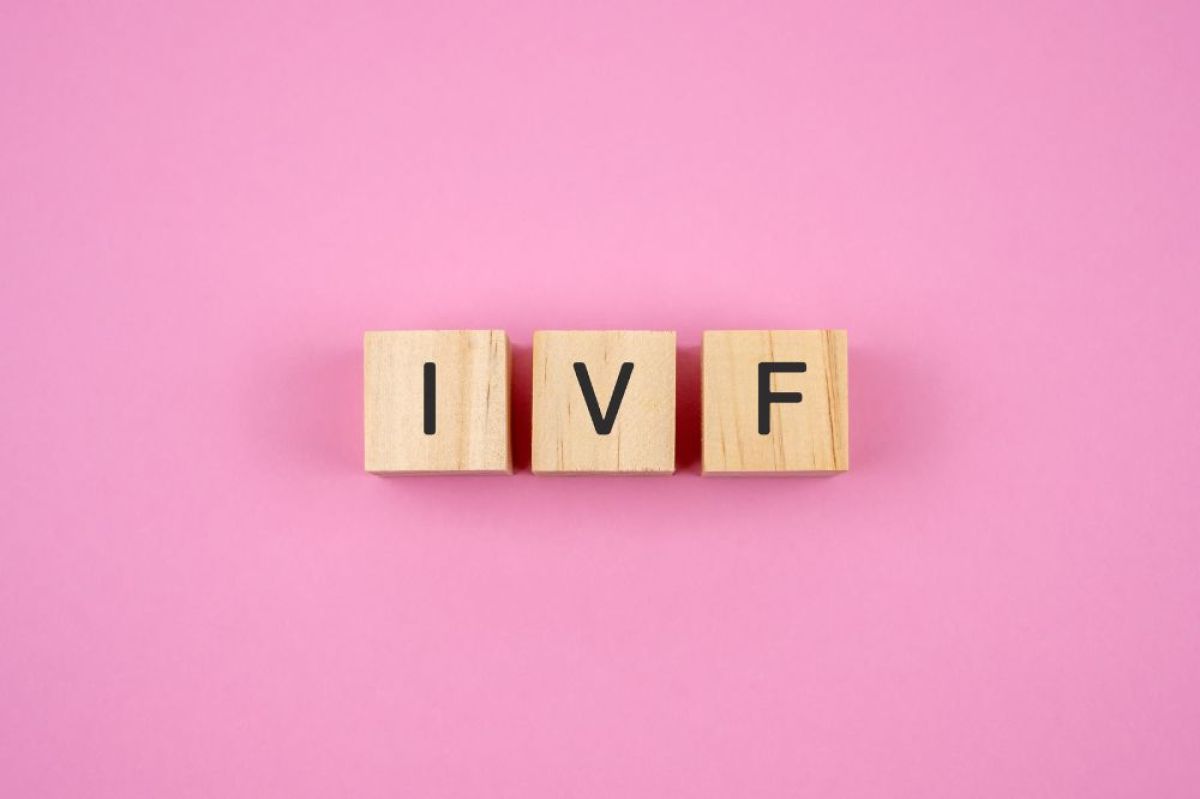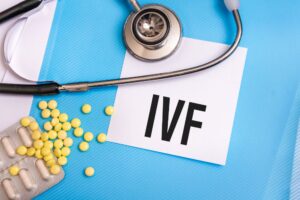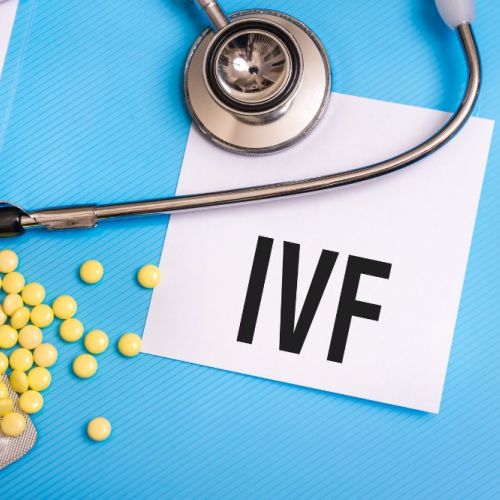How Much Is IVF in California – Cost & Financial Options

For many hopeful parents, In Vitro Fertilization (IVF) represents a path to parenthood that wouldn’t be possible otherwise. However, fertility treatments costs are often a concern. IVF is no exception: it requires a major financial commitment, with costs that can quickly add up depending on various factors, such as clinic location, required treatments, and whether insurance provides any coverage.
California, particularly cities like Los Angeles, San Francisco, and San Diego, is home to some of the top fertility clinics in the country. While this means access to cutting-edge technology and highly skilled specialists, it also means that IVF costs in California tend to be higher than the national average.
Understanding the full scope of IVF expenses, including hidden fees, medication costs, and financing options, can help you plan better and make informed decisions about your treatment.
What Is the Cost of IVF in California?
Average Cost of IVF in California
The cost of a single IVF cycle in California typically ranges between $12,000 and $25,000, but this base price does not include medications or optional procedures like genetic testing or embryo freezing. When factoring in these additional expenses, the cost per cycle can exceed $30,000, making it one of the most expensive states for IVF. The overall IVF cost can be significantly impacted by specific procedures such as Intracytoplasmic Sperm Injection (ICSI), which can add an additional $1,000 to $2,500.
Compared to the national average of $15,000 per cycle, California’s higher costs are influenced by factors such as clinic reputation, medical technology and demand.
Here’s a breakdown of estimated costs based on location:
- Los Angeles: $18,000 – $25,000 per cycle
- San Diego: $12,000 – $20,000 per cycle
- San Francisco: $15,000 – $22,000 per cycle
Prices fluctuate depending on the clinic, the experience of the fertility specialists, and whether the facility offers advanced services like on-site genetic testing.
What’s Included in the Base Cost?
Most fertility clinics in California bundle essential IVF services into a standard package, which generally covers:
- Initial consultation & fertility assessments.
Includes basic testing to evaluate egg quality, sperm health, and overall fertility potential. - Ultrasounds & bloodwork.
Used to monitor ovarian response to stimulation medications. - Ovarian stimulation & monitoring.
Hormone injections to encourage multiple egg production. - Egg retrieval procedure.
A minor surgical procedure to collect mature eggs from the ovaries. - Laboratory fertilization
The process of fertilizing retrieved eggs with sperm in a lab. - Embryo transfer
Placing one or more fertilized embryos into the uterus.
While these are the standard components of an IVF cycle, many critical services are not included in the base price, leading to unexpected expenses.
What’s NOT Included? (Hidden Costs & Unforeseen Expenses to Watch For)
Although most clinics advertise an IVF package price, there are several extra costs that patients may not anticipate:
- Medications: $3,000 – $7,000.
IVF requires multiple medications, including hormone injections and progesterone support. These are usually billed separately and can significantly increase your total expenses. - Anesthesia: $500 – $1,500 per procedure.
- Preimplantation Genetic Testing (PGT): $3,000 – $7,000.
Optional but recommended for patients at risk of genetic conditions or recurrent miscarriage. - Intracytoplasmic Sperm Injection (ICSI): $1,500 – $3,000.
A specialized procedure for male infertility where a single sperm is injected directly into an egg. - Egg Freezing & Storage: $6,000 – $15,000 upfront, plus $500 – $1,000 per year for storage.
This option is commonly chosen for medical or personal reasons, such as delaying pregnancy or before undergoing medical treatments. - Embryo Freezing & Storage: $1,000 – $2,000 upfront, plus $500/year for storage.
If you produce multiple embryos, freezing and storing them for future use adds another expense. - Frozen Embryo Transfer (FET): $3,500 – $5,000.
If your first cycle does not result in pregnancy, using frozen embryos from a previous cycle requires a separate procedure. - Egg Donation: $10,000-$60,000.
This option is often chosen by individuals with low ovarian reserve or genetic concerns. Costs vary depending on factors such as the donor’s medical history, location, and agency fees. - Sperm donation: $500 to $1,500 per vial, plus additional fees for storage and shipping. Sperm donation is a common choice for single women, same-sex female couples, and couples facing male factor infertility. It can also be an option for individuals looking to prevent the transmission of genetic conditions to their child.
- Gestational surrogacy: $80,000+.
Surrogacy is typically used by same-sex male couples, individuals with medical conditions preventing pregnancy, or those who have experienced multiple failed IVF cycle. Costs can often exceed $150,000 when factoring in legal fees, medical expenses, and compensation for the surrogate.
Many patients find that after factoring in these additional costs, their total IVF expenses end up being 30-50% higher than the initial quoted price.
What Factors Affect the Cost of IVF in California?
Type of IVF Procedure
The in vitro fertilization costs in California depend on the specific type of IVF treatment chosen. Traditional IVF (conventional IVF) typically costs between $12,000 and $25,000 per cycle, excluding medications and add-ons. Mini IVF, which uses lower doses of stimulation medication, is generally more affordable, ranging from $5,000 to $10,000 per cycle, but may require multiple cycles to achieve pregnancy. Natural IVF, which involves no or minimal ovarian stimulation, is the least expensive option, costing around $4,000 to $7,000 per cycle; however, it has lower success rates and may not be suitable for all patients. Understanding these cost variations can help patients select the most appropriate and cost-effective treatment for their fertility journey.
Number of IVF Cycles Needed
The success rate of IVF varies, and while some patients conceive on their first cycle, others may require multiple attempts. Each additional cycle adds another $12,000 – $25,000, meaning the final cost could range from $36,000 to $75,000+ if multiple cycles are necessary.
Add-On Treatments & Their Costs
Depending on your specific fertility challenges, additional procedures may be recommended, such as ICSI (for male factor infertility), PGT (genetic testing to select the healthiest embryos), Embryo Freezing and Frozen Embryo Transfer (FET).
Depending on your situation, you might also choose to use donor eggs, donor sperm, or a surrogate, adding up to the overall cost.
Medication Costs (Often Excluded)
Medications are a critical but often overlooked expense, ranging from $3,000 to $7,000 per cycle. These include:
- Clomiphene Citrate to stimulate egg production.
- Gonadotropins to encourage multiple eggs to mature.
- Progesterone to support early pregnancy after embryo transfer.
Since insurance rarely covers fertility medications, out-of-pocket costs can quickly add up.
Location & Clinic Pricing Differences
IVF costs vary widely by clinic due to differences in:
- Technology & lab quality.
Clinics with state-of-the-art labs may charge higher fees. - Clinic reputation & success rates.
High-success-rate clinics often come at a premium. - Demand & location.
Clinics in major cities like Los Angeles and San Francisco tend to have higher prices than those in smaller areas like Sacramento or Fresno.
At the California Center for Reproductive Health, we strive to make fertility care accessible by offering a range of affordable programs, including Mini-IVF, Access IVF, and Low-Responder pricing. These options provide high-quality treatment at a lower cost, ensuring that patients have access to care that fits their unique needs and budget.

Insurance Coverage and Financial Options
Fertility Insurance Laws in California
California does not require insurance companies to cover IVF treatment. However, some insurance plans do cover diagnostic fertility testing and initial consultations.
Recent legislative updates could impact fertility coverage, so it’s important to check with your insurance company to see what’s included.
Employer-Sponsored Insurance Plans
Some large employers, such as Google, Apple, and Meta, offer full or partial coverage for IVF. If you have employer-sponsored insurance, check with your HR department to see if IVF treatment is included in your benefits package.
How to Check if Your Insurance Covers IVF
Before starting treatment, call your insurance company directly and ask about:
- IVF treatment coverage: Are any procedures covered?
- Medication coverage: Will insurance cover fertility drugs?
- Preauthorization requirements: Do you need prior approval for treatment?
Financing & Cost-Saving Strategies for IVF in California
For many couples, the overall cost can feel overwhelming, but there are financial strategies that can make treatment more affordable. From multi-cycle discounts to grants and financing options, California patients have several ways to reduce out-of-pocket expenses and make IVF more accessible.
Fertility Grants & Financial Assistance
Several organizations offer financial assistance to patients undergoing fertility treatments in California. These grants can help cover part of the IVF cost and do not need to be repaid.
California-Based IVF Grants:
- BabyQuest Foundation
A national fertility grant program that prioritizes California applicants. Grants typically range from $2,000 to $16,000. - The Hope for Fertility Foundation
Offers grants to individuals and couples struggling with infertility, including those in California.
National IVF Grants Available to California Patients:
- AGC Scholarship Foundation
Provides financial aid to those who cannot afford treatments. - Cade Foundation
Helps couples pay for treatment through grants and scholarships.
Applying for these grants requires a detailed application process, and competition can be high. However, for those who qualify, they can significantly offset the financial burden of IVF.
Fertility Clinic Discounts & Payment Plans
Many fertility clinics in Los Angeles and across California offer financing options to help patients manage costs.
- In-house financing
Some clinics partner with financial institutions to offer payment plans that allow patients to spread out the cost over several months or years. - Medical loans
Some lenders specialize in loans for infertility treatments, offering fixed interest rates and flexible repayment terms. - Discounts for specific groups
Some clinics provide reduced pricing for military families, first responders, and teachers. If you qualify for any special discounts, be sure to ask during your consultation.
Financial coordinators are available at many clinics to help patients understand their insurance benefits and financial obligations, reducing stress associated with treatment expenses.
At the California Center for Reproductive Health, we are contracted with all major health insurance companies and also work with Kindbody and Carrot, third-party providers that help patients access fertility benefits. For more information, reach out online or call us at (818) 907-1571.
Using Personal Loans & Health Credit Cards
For those who do not qualify for grants or employer-sponsored coverage, personal loans and medical credit cards can be alternative ways to finance IVF.
- Personal loans
Offered by banks, credit unions, and online lenders, personal loans for fertility treatment typically have APRs ranging from 6% to 36%, depending on your credit score. These loans can be a good option for spreading out costs, but it’s important to compare rates and repayment terms before committing. - Health financing options
Specialized medical financing companies such as CareCredit, Future Family, and CapexMD offer loans designed specifically for fertility treatments. These companies provide structured repayment plans, sometimes with promotional interest-free periods.
Traveling for More Affordable IVF Treatment
Some couples opt for “fertility tourism” within California, seeking out clinics in lower-cost cities to reduce expenses. While major fertility clinics in L.A. and San Francisco may charge premium prices, smaller clinics in nearby areas might offer the same quality of care at a lower rate.
If you are open to traveling for treatment, comparing pricing across different cities can lead to significant savings.
At the California Center for Reproductive Health (CCRH), we proudly help patients from around the world achieve pregnancy. With exceptional assisted reproductive technology (ART) success rates, state-of-the-art facilities, and dedicated liaison services, we have gained international recognition as a leading fertility center.
No matter where you’re located, getting started is simple. Your first step is an initial telephone consultation with one of our board-certified reproductive endocrinology and infertility specialists. We accommodate time differences and provide in-office interpreters for languages including Chinese, Spanish, Russian, German, and Hebrew.
To schedule your consultation, call us toll-free at (866) 998-8225 (U.S.) or (818) 907-1571, or email frontdesk@center4reproduction.com.
The Impact of Recent Legislation on IVF Costs
Executive Orders and Their Implications
Recent legislative efforts at both the state and federal levels aim to reduce IVF costs and improve accessibility. But what does this mean for patients in California?
- State funding initiatives
Lawmakers are exploring ways to allocate more state resources toward fertility treatments, which could lower out-of-pocket expenses for patients in the future. - Tax deductions & credits
There have been discussions about offering fertility tax credits to help offset the cost of IVF, though details on implementation remain unclear.
While these changes are still in development, staying informed about legislative updates could help patients take advantage of new financial relief programs as they become available.
Potential Changes in Insurance Coverage
Health insurance policies frequently change, and some companies are expanding their fertility benefits due to increased demand.
- Some employers are adding IVF coverage to their health plans, especially in tech, finance, and healthcare industries.
- Insurers may adjust policies in response to state-level initiatives aimed at improving access to fertility care.
If you’re considering IVF, call your insurance provider and ask about upcoming policy changes, as coverage may expand in the near future.
IVF in California Is Worth the Cost
There’s no denying that IVF in California, especially in Los Angeles, is expensive, but for many hopeful parents, the investment is worth it. The key to managing costs is to explore all available financing options, insurance coverage, and discount programs to reduce the financial burden.
At the California Center for Reproductive Health in Los Angeles, we offer competitive pricing, financing options, and compassionate care to help make IVF more accessible. Schedule a consultation today to discuss your options and get a personalized cost breakdown based on your unique needs.





